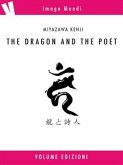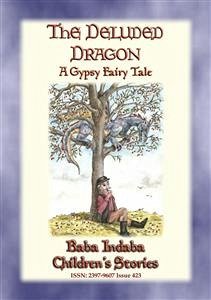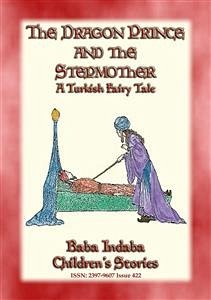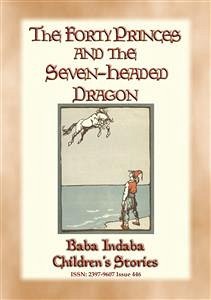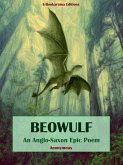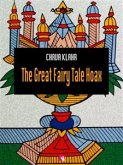The tale "The dragon and the poet" by Miyazawa Kenji (1896-1933) is the story of the meeting between the poet Suldatta and the dragon Chanata, in a magical atmosphere among poetry challenges, esoteric Buddhism and traditional Japan.
The author, Miyazawa Kenji, dedicated is tales to children considered by him the only able to understand the universal teaching hidden inside them.
This version of the eBook "The dragon and the poet" is enriched by seven painting of the italian artist Francesca Eleuteri, painting especially realized by the artist for the tale "The dragon and the poet" and exhibited around Europe.
From the preface:
"The purpose of the work of my whole life has been to deliver this holy book in your hands, and make you able to enter the Most Noble Path by contacting the teaching of the Buddha"
This is the note that on his deathbed Kenji asks his father to write on the copies, addressed to his friends, of the Japanese translation of the Lotus Sūtra. They echo the words of Sakyamuni "... I do what only because they could get the 'One Vehicle of the Buddha and the knowledge of each mode ..."
The entire life of Miyazawa Kenji is the life of a bodhisattva of shakke, who acts for the good of the people fully utilizing their individual skills, generously devoting their talents to help others and contributing to social progress; Miyazawa wrote in 1914 to his friend Seki Tokuya :"From now on, the art will be the religion, the religion will be the art".
The author, Miyazawa Kenji, dedicated is tales to children considered by him the only able to understand the universal teaching hidden inside them.
This version of the eBook "The dragon and the poet" is enriched by seven painting of the italian artist Francesca Eleuteri, painting especially realized by the artist for the tale "The dragon and the poet" and exhibited around Europe.
From the preface:
"The purpose of the work of my whole life has been to deliver this holy book in your hands, and make you able to enter the Most Noble Path by contacting the teaching of the Buddha"
This is the note that on his deathbed Kenji asks his father to write on the copies, addressed to his friends, of the Japanese translation of the Lotus Sūtra. They echo the words of Sakyamuni "... I do what only because they could get the 'One Vehicle of the Buddha and the knowledge of each mode ..."
The entire life of Miyazawa Kenji is the life of a bodhisattva of shakke, who acts for the good of the people fully utilizing their individual skills, generously devoting their talents to help others and contributing to social progress; Miyazawa wrote in 1914 to his friend Seki Tokuya :"From now on, the art will be the religion, the religion will be the art".



